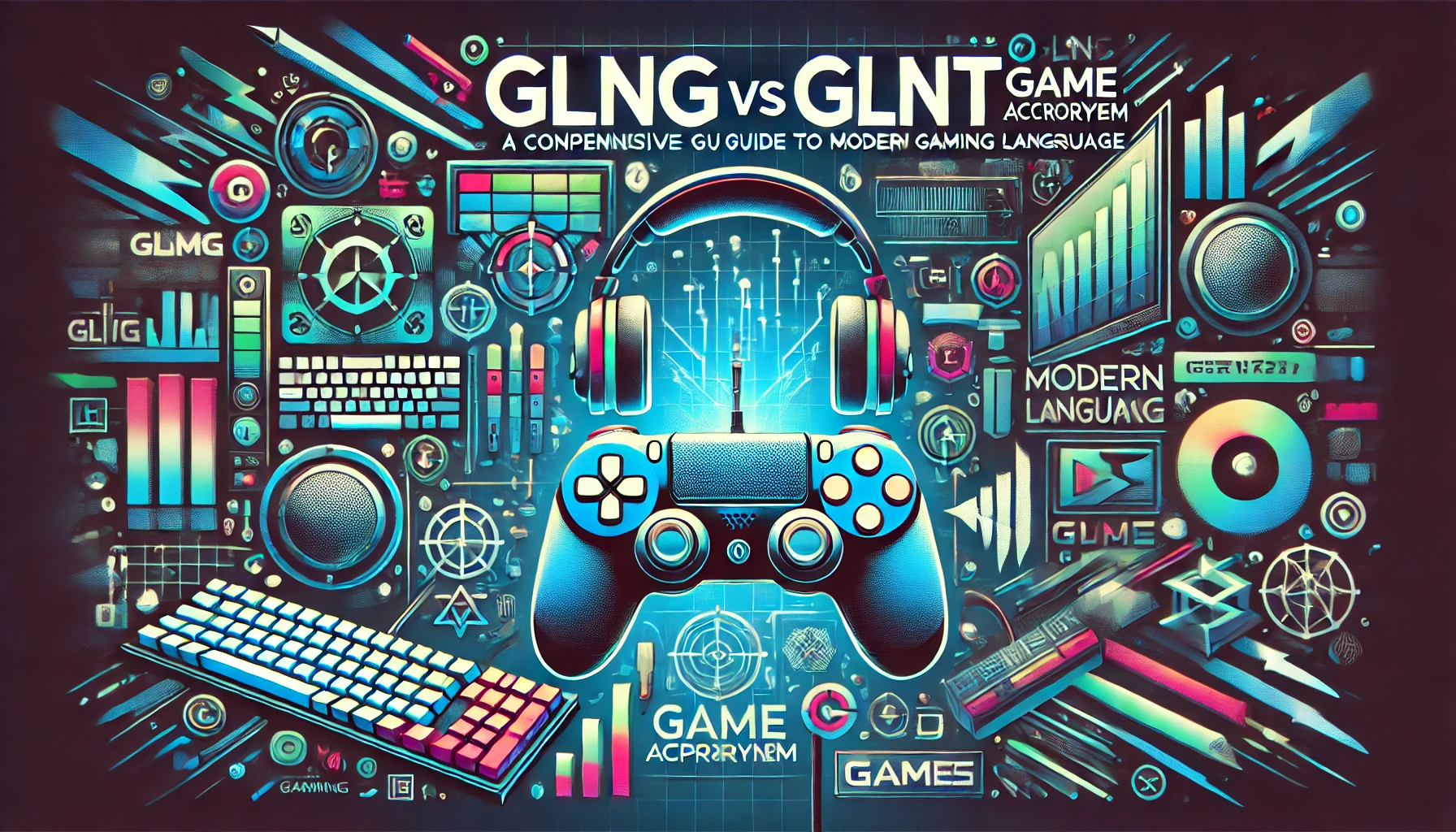Introduction
In the vibrant world of gaming, acronyms like “GLNG vs GLNT game acronym” have emerged as essential components of player communication. These terms, GLNG (Good Luck, Not Good Game) and GLNT (Good Luck, Not Thank You), encapsulate shifts in gaming etiquette, blending respect with authenticity. Understanding their significance can enhance your interactions, whether you’re a casual gamer or a professional esports competitor.
What Do GLNG and GLNT Stand For?
GLNG: Good Luck, Not Good Game
GLNG is used to wish an opponent good luck without committing to the customary “Good Game” at the end. It is ideal for situations where the gameplay was unbalanced or unsatisfying, allowing players to remain respectful without forced politeness.
GLNT: Good Luck, Not Thank You
GLNT focuses on maintaining sportsmanship while skipping unnecessary gratitude. It acknowledges the interaction but refrains from obligatory “Thank You” responses unless genuinely felt.
Origins of GLNG and GLNT
The GLNG vs GLNT game acronym originated from the evolving dynamics of online multiplayer games. With the rise of esports and global gaming communities, traditional phrases like “GG” started feeling robotic or insincere. Players wanted acronyms that balanced respect with emotional authenticity, leading to the creation of GLNG and GLNT.
Timeline of Evolution
| Year | Key Development |
| Pre-2010 | Dominance of phrases like GG, GLHF in casual gaming. |
| 2015 | Rise of competitive gaming and esports communication. |
| 2020 | GLNG and GLNT gain traction in professional gaming. |
The Cultural Impact of GLNG vs GLNT
Promoting Honest Communication
Traditional gaming etiquette often pressures players to compliment matches even when they were frustrating. GLNG and GLNT allow for a respectful yet honest interaction, making communication feel more authentic.
Fostering Respect in Competition
While these acronyms omit certain formalities, they still uphold respect. By emphasizing good luck, they create a tone of camaraderie without overstepping into insincerity.
A Tool for Emotional Management
Competitive gaming can trigger intense emotions. Using GLNG or GLNT helps players maintain composure, offering a polite exit from potentially heated exchanges.
Psychological Influence on Gamers
- Reducing Toxicity: These acronyms encourage a less toxic environment by providing neutral and respectful alternatives.
- Encouraging Positivity: Wishing luck reinforces the spirit of fair play.
- Authenticity in Communication: Players feel less pressured to adhere to insincere norms.
Comparisons with Other Gaming Acronyms
| Acronym | Meaning | Usage |
| GG | Good Game | Post-match to acknowledge a game, win or lose. |
| GLHF | Good Luck, Have Fun | Pre-match to encourage fair play and enjoyment. |
| GLNG | Good Luck, Not Good Game | When the game wasn’t enjoyable or balanced. |
| GLNT | Good Luck, Not Thank You | To maintain politeness without excessive formalities. |
Role of GLNG and GLNT in Esports
Professional Players’ Perspective
In high-stakes matches, emotions run high. The GLNG vs GLNT game acronym offers a professional yet authentic way to maintain decorum, ensuring sportsmanship even in intense settings.
Team Communication
Esports teams use these terms to signal respect and competitive spirit, fostering better internal dynamics and external perception.
Tips for Using GLNG and GLNT in Gaming
- Start With GLNG: Begin matches with “GLNG” to wish luck while setting a neutral tone.
- End Appropriately: Use GLNT when you wish to acknowledge an interaction without insincere pleasantries.
- Adapt to Context: Be mindful of your audience; some players may still expect traditional phrases like GG.
- Combine Acronyms: Pair GLNG or GLNT with a positive message to ensure clarity, e.g., “GLNG! Let’s have a great match.”
Future of Gaming Acronyms
As gaming communities evolve, acronyms like GLNG vs GLNT game acronym are likely to become more nuanced. The rise of VR and AI-driven games may even lead to automated etiquette systems, integrating such terms into in-game interactions.
Predicted Trends
- Customized Acronyms: Players may develop personalized terms for their communities.
- Integration into AI Chat: Smart systems could suggest context-appropriate acronyms.
- Cultural Diversification: Gaming acronyms may adapt to different languages and cultural nuances.
Conclusion
The GLNG vs GLNT game acronym represents more than mere shorthand; it signifies a shift in gaming culture towards authenticity and respect. By understanding and using these terms thoughtfully, players can contribute to a more positive and inclusive gaming environment.
FAQs
-
What does GLNG vs GLNT game acronym mean?
GLNG means “Good Luck, Not Good Game,” and GLNT stands for “Good Luck, Not Thank You.”
-
Why are GLNG and GLNT important?
They allow gamers to communicate respectfully and authentically, reducing toxicity.
-
Where did GLNG and GLNT originate?
These terms evolved from the competitive gaming culture to balance politeness with genuine sentiment.
-
Are GLNG and GLNT used in professional gaming?
Yes, they are widely adopted in esports to maintain respect and manage intense emotions.
-
Can I use GLNG and GLNT casually?
Absolutely! These terms are versatile and suitable for both casual and competitive gaming.
